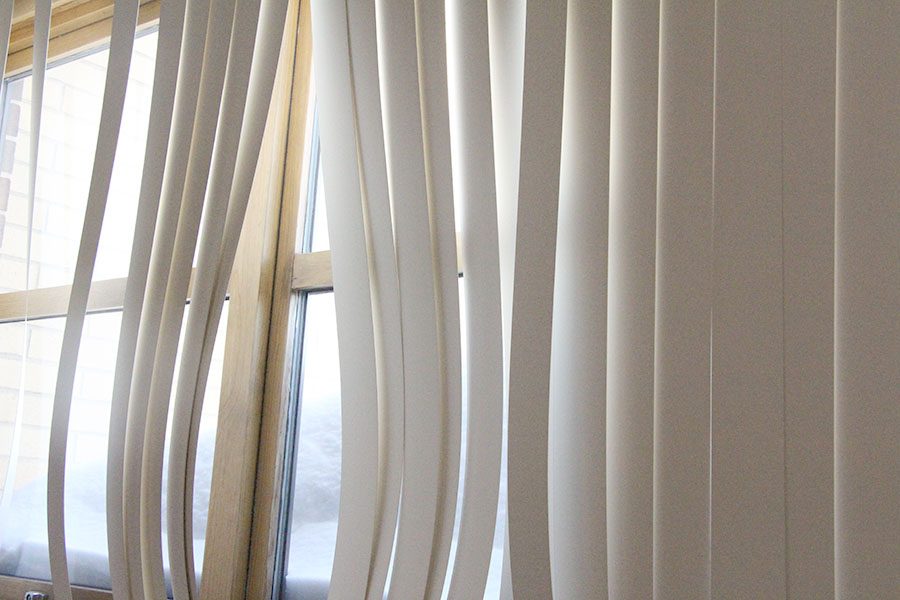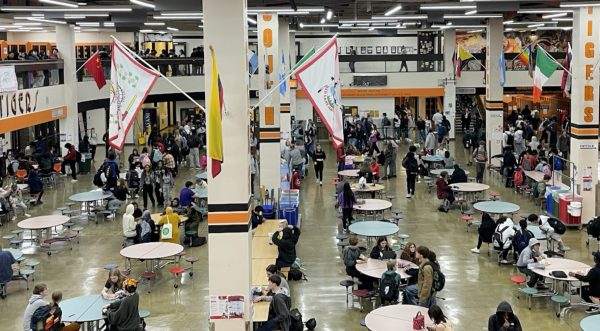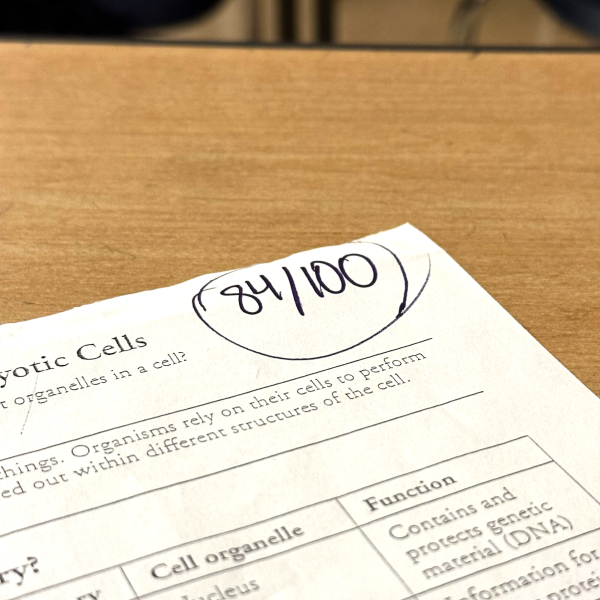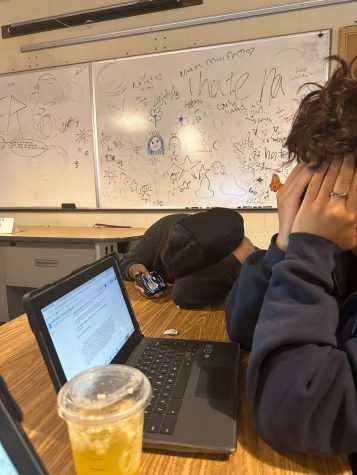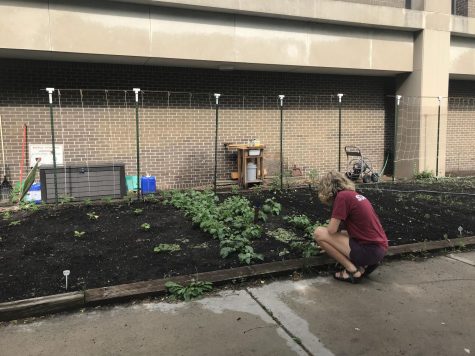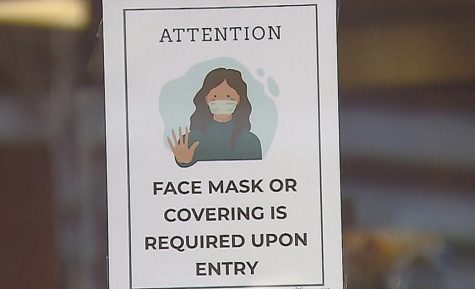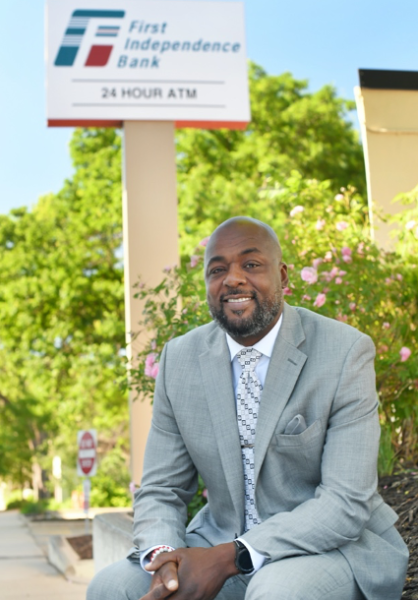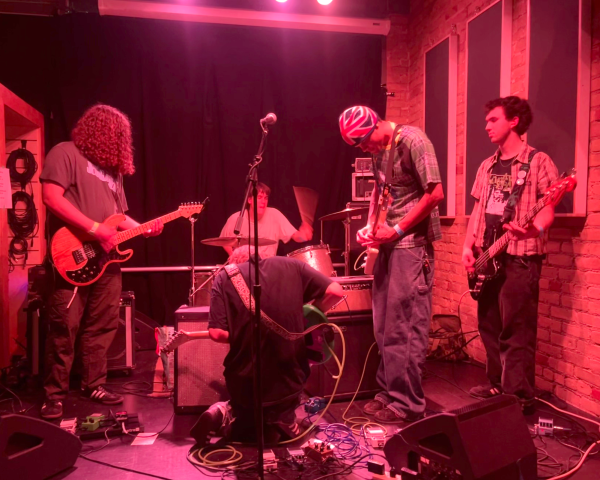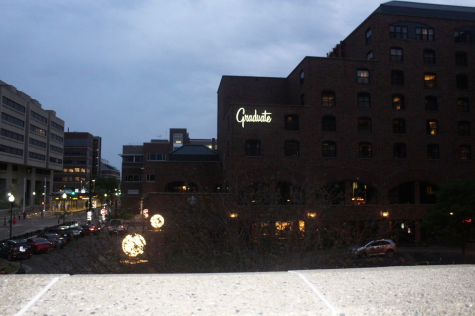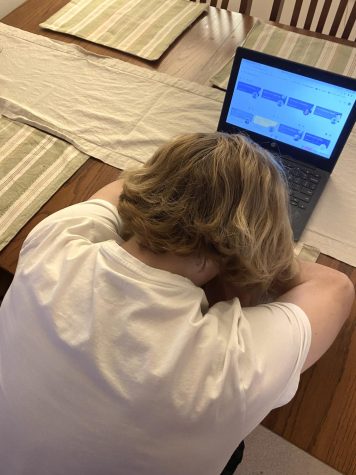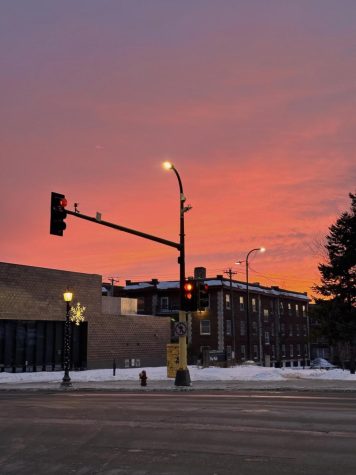South is a sad SAD place: how students experience Seasonal Affective Disorder
Even in classes with windows, like those on the third floor, students oftentimes find blinds shut, taking away the little natural light we have. Lack of natural light, among other factors, makes South a very hard place to be for students with seasonal affective disorder (SAD).
I wake up to get ready for school while it’s still dark outside. On days where I have a zero hour, it’s still dark when I get to school and I prepare myself for another long, tiring day. My first three classes don’t have windows, and I try to get out for lunch but as I approach the door the harsh wind and snow is too much to go outside. I get to fourth hour, ready for windows, only I walk in and find the blinds closed. Throughout the day, my energy drains and I have more and more trouble focusing on my teachers, no matter how hard I try. When school finally ends, I take the bus to sports practice, where I’m in another windowless area until dusk. A day of barely experiencing natural light is normal for many South students. As someone who suffers from Seasonal Affective Disorder (SAD), this is particularly harmful.
Seasonal Affective Disorder is a form of depression that relates to the changing of season. It generally affects people during winter seasons due to lack of Vitamin D. Along with feelings of sadness and hopelessness, SAD often makes people tired, low energy, lose sleep and lose motivation. “It makes it a lot harder to focus on things and stay motivated to get things done, specifically in school,” said senior Siobhan Sullivan.
Students with SAD often struggle at school in the winter, especially when they can’t get natural light during the day. “It makes me a lot less motivated to finish projects or sometimes even to start them especially when I’m in a dark classroom with no natural light,” said sophomore Olivia Lee.
It’s not fair for students who suffer from SAD to have to make accommodations to lessen the effects put on by our own school. Senior Mickey Edwards said “I would have to take a lot of breaks, go walk around maybe go up to the 3rd floor, find some sun, things like that.” Students should not have to make their own adjustments to their school day in order to salvage their mental health.
Very few classes at South have windows, and the ones that do are generally on the third floor and are only appreciated by some students. The first and second floors give off a negative energy and make people tired, adding to the effects of SAD to students. “The grogginess of the inside of classrooms not only makes you feel closed in, but makes you feel tired because you’re not getting any natural light or air. It makes you feel gross,” said Lee. Edwards added that simply “it’s not the greatest being in South on the 1st or 2nd floors.”
Furthermore, many students are at school from dawn until dusk, with a zero hour and sports or theater. If they don’t have classes with windows, they won’t see the sun all day. “I would come before the sun rose and leave after sundown so I wouldn’t see light at all,” said Lee.
Although the third floor of South has some windows, classrooms are often found with the blinds down, putting the same effect on the room as on the other floors. When I go to my first class on the third floor, I’m excited to get some natural light but am often disappointed to find the light blocked by the blinds.
This lack of windows contributes greatly to students’ mental health during the winter and throughout the year. The prison-esque architecture of the building also tends to make people feel trapped. South is making strides to improve this via the solar tubes that will be installed in the commons next year, but there’s only so much they can change about the architecture. “In relation to the structure of the school, there’s not that much that they can do,” said Lee.
If students aren’t mentally stable, it makes it a lot harder for them to be as successful in their classes as they could be. “It makes it harder to get work done, harder to focus, harder to advocate for myself,” said Sullivan. In the winter, I often find my mind wandering and don’t feel confident to stick up for my needs, which makes succeeding in school much more difficult.
Teachers need to recognize the effect South has on people with SAD and make accommodations in order to help them. Lee said that “[SAD] a good thing to talk about… making it a point to educate your students so they know what they’re dealing with and have resources to help with [SAD’s effect on them.]”
It also very important that students feel that they have a teacher or an adult in the school that they can count on. It’s often hard for students to ask for help and may not want to go to the clinic but teachers should consider students´ mental health and put effort to support their students. “I know friends who deal with it too and most of them end up going to people instead of having teachers or counselors come to them,” said Sullivan.
SAD doesn’t only affect the educational aspect of life, it also makes maintaining social relationships much harder. “It makes maintaining relationships, friendships a lot harder,” said Sullivan. This also makes focusing on school much harder because there are more things on your mind.
South should have more options for students who suffer from SAD and other mental health struggles. During the winter, teachers must consider the health of their students and make accommodations to their teaching to support them. If South had a lounge-type space with natural light where students could go in free hours to study, relax, or listen to music, students would be more able to take breaks that worked for them. There’s a lot more that South could be doing to help students with SAD and as a school we should at least take some initial necessary steps.

Ellie Barnett-Cashman is a senior at South High School starting her third year on the Southerner. Barnett-Cashman spent her first year on the team as a...

